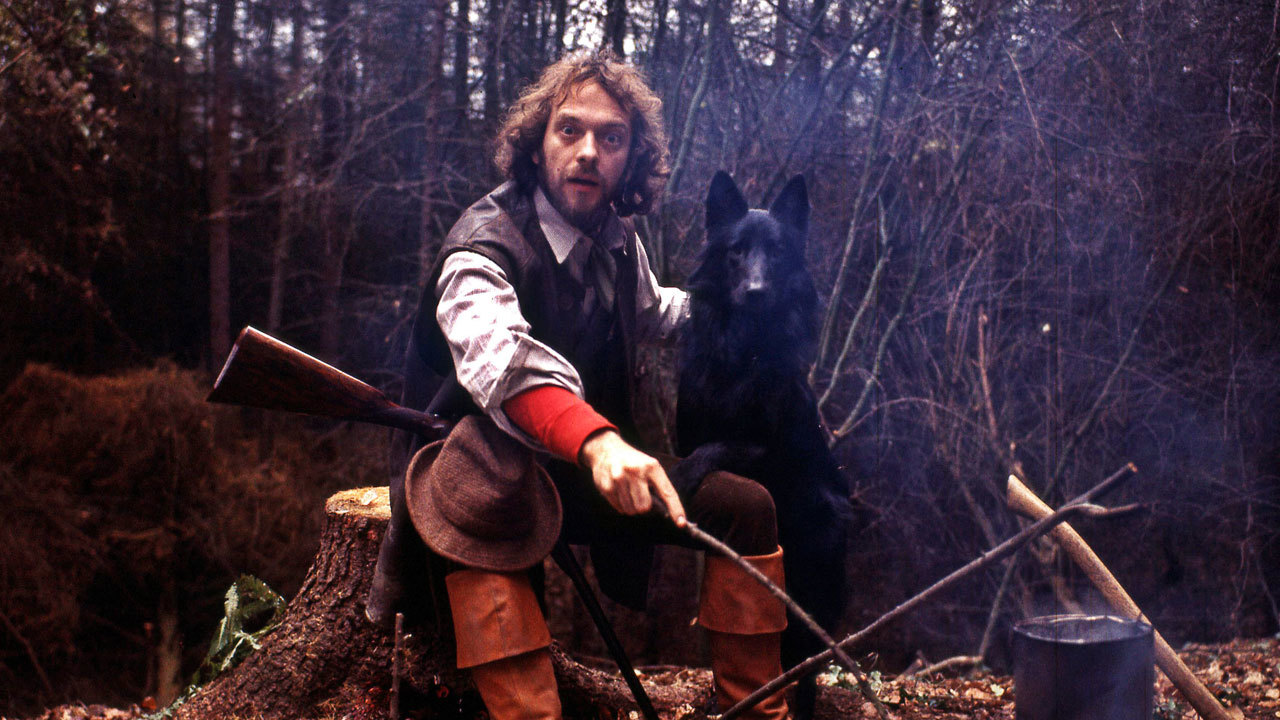There is a generally accepted history of British music for 1977. In this narrative, it was not just the year that punk broke out, but also a true pop-culture watershed; a Year Zero in which rock’s so-called old guard were swept away by a revolutionising horde of angry upstarts. Certainly, at the outset of that year, The Buzzcocks and The Damned fired off opening salvos with their debut records, respectively the Spiral Scratch EP and Damned Damned Damned. By the spring, The Clash with The Clash and The Stranglers with Rattus Norvegicus had joined the fray. And that summer, Silver Jubilee street parties across the country had for an alternative soundtrack the three bile-filled minutes of the Sex Pistols’ God Save The Queen. Come October, the Pistols’ Never Mind The Bollocks album stormed straight to No.1.
However, the long-held notion that ’77 belonged to the punks alone, that so much else was rendered instantly obsolete, or else irrelevant, is facile and plain wrong. Among the bestselling records by far that year were three that were entirely at odds with punk’s amateurish ethos: Fleetwood Mac’s Rumours, Meat Loaf’s Bat Out Of Hell and ELO’s Out Of The Blue. One of the most questing was the first solo album from former Genesis singer Peter Gabriel, who at 27 was seven months younger than The Stranglers’ Hugh Cornwell. Bleakest by far was Pink Floyd’s Animals, in which Roger Waters imagined a Britain sunk in a cesspit of social and moral decay.
Yet even Waters’s tar-black dystopian vision was not the most extreme alternative to punk to appear, and sell by the truckload, that year. That was a record released in February, a week before Damned Damned Damned, and which was rooted in old English folklore. Indeed, listening to its mostly acoustic-based songs, with their antiquated lyrics and colourings of mandolin, glockenspiel, pipe organ and flute, one could imagine nothing so much as sprites, goblins, elves and faeries frolicking about a mystical Neverland. Further, it was a record crafted largely by a bearded, unruly haired, boggle-eyed man who habitually dressed as a medieval minstrel. The album was Songs From The Wood by Jethro Tull.
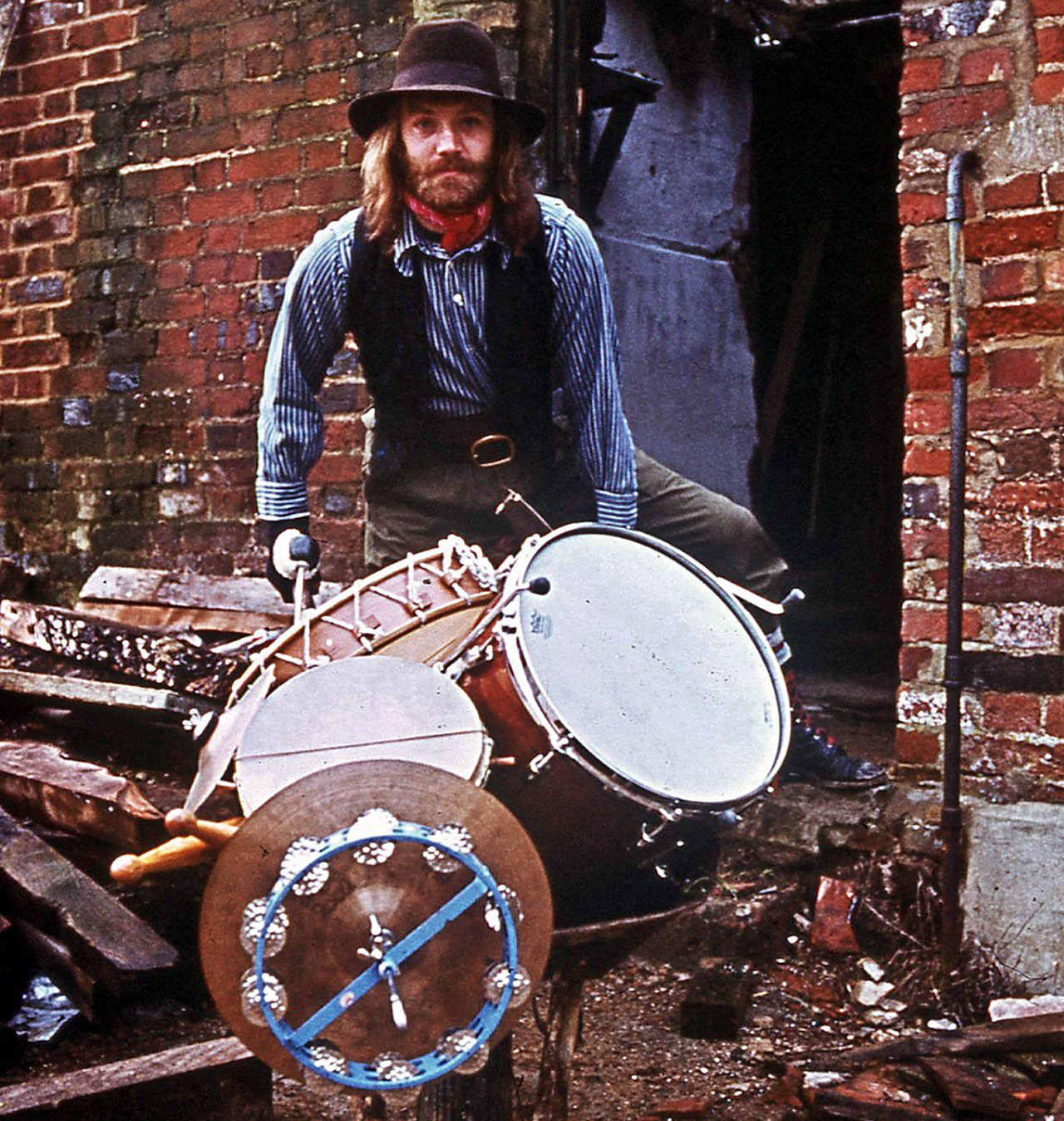
Songs From The Wood was Tull’s tenth studio album, and both commercially and creatively, one of their most successful. It was the first they made after singer and bandleader Ian Anderson had quit London and gone to live in a rural idyll. Holed up in his 16th-century Buckinghamshire farmhouse with his new wife, Shona Learoyd, a former ballet dancer, Anderson conjured a vanished England steeped in myth and legend. He then set it to music that was all at once archaic, playful and plangent. To welcome the listener into this world, there was Anderson on the album’s cover, pictured as a kind of Middle Ages poacher, like a character from picaresque fiction. He seemed to care not a jot about the encroaching, marauding menace of punk.
“Quite frankly, I didn’t,” Anderson says today, delightedly. “It would have been ludicrous to try to ingratiate oneself with the audience of that changing time. And remember, the punk thing was something that began back with the MC5 and ‘Kick out the jams, motherfuckers.’ I know, because I was on stage supporting them in Seattle in 1969.”
Seventy this year, Anderson is just as you might hope he would be. Which is to say he is every inch the urbane, gentleman rock star: articulate, expansive and self-deprecating. “We had kind of been there with punk anyway,” he continues, warming to his subject. “I mean in the sense that some of Tull’s earlier music was brash and untutored. Famously, Johnny Rotten was quite a fan of Aqualung, the track. But given the mood of the times, Songs From The Wood was not street cred music. This was stuff that would have made Johnny projectile vomit.”

Ian Anderson founded Jethro Tull in 1967 along with two grammar-school mates in his adopted home town of Blackpool. He was born in Dunfermline in 1947, and moved south to Lancashire with his Scottish father and English mother in 1959. The nascent Tull had sounded so raw, so primal, that Tony Iommi was briefly their guitarist, before hot-footing it back to Birmingham to spark up Black Sabbath. By the mid-70s, though, Tull were so well-established that a feature in Melody Maker posed the question: “Jethro Tull – Now the biggest band in the world?”
Anderson, a uniquely captivating frontman who played the flute while spinning and pirouetting on one leg, emerged as their driving creative force and visionary. It was his high-flung ideas that shaped two pivotal albums: Aqualung in 1971 and the next year’s Thick As A Brick, a sprawling concept double that made Tull stars. A further concept piece, 1976’s Too Old Too Rock ’N’ Roll: Too Young To Die, had been the springboard for their most elaborate tour to date, taking them into stadiums in the US where they performed in front of giant projection screens, which was at the time a groundbreaking initiative.
Returning from this extravaganza to England that summer, Anderson removed himself to his farm and began to pore over a book on English lore and legend he had been gifted by Tull’s de facto manager, a brash New Yorker by the name of Jo Lustig (“The best way to describe him,” Anderson says, “would be as a full-on Neanderthal presence. He used to infuriate me, but his heart was in the right place.”). As Anderson read, the landscape of Songs From The Wood took shape in his mind, coalescing as a pastoral song cycle that was just as anachronistic in the mid-70s as one of the codpieces he often wore on stage.
“That book was a very useful gift,” Anderson says now. “But it wasn’t the only one that I read back then on the general topic of Britain’s history of folklore. The countryside too provided me with some influence. Our countryside is quite rich in different traditions and cultures, and elements of fantasy and fable. Songs From The Wood also drew on my background of listening to other kinds of music than rock. I’ve never really been a fan of rock music. I was trying to stick to musical references that arose when classical composers fooled around with the vulgar folk music forms. Beethoven, for one, knew a good folk tune when he heard it.”
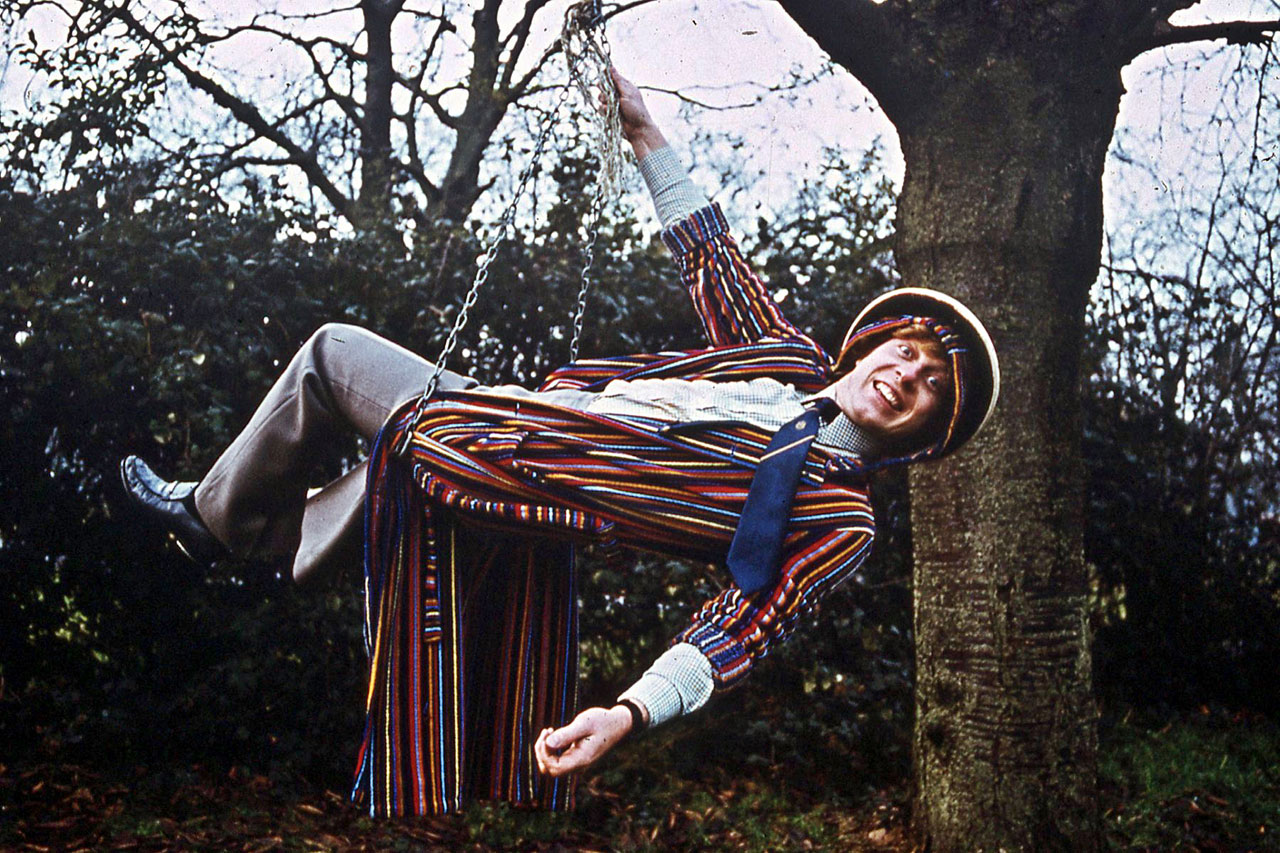
Anderson’s connections to the British folk-rock scene were well established. In 1974 he had produced leading lights Steeleye Span’s Now We Are Six album, and had even persuaded David Bowie to blow saxophone on one track, To Know Him Is To Love Him. He was, though, at best ambivalent about many aspects of the British folk tradition. As he set to the task of writing Tull’s new album, he resolved to fashion music that would not, as he once put it, “be a wet kind of folk”.
“Perhaps I might have said that,” he defers. “But I think British, and more particularly, English folk music is always better when it doesn’t get caught up in its own very stylised past. I was a fan of the more modern English, Scottish and Irish folk music. People like Bert Jansch and Roy Harper were top of the list for me at the time.
“No disrespect whatsoever to Steeleye Span, who I always enjoyed, but there were one or two members of the band who were rather infatuated with the idea of gathering in barley by hand. That was something I found difficult to grasp, because I was driving a big old tractor and combine harvester. My world in terms of the rural English tradition was about smoking diesels.”
When it came to his lyrics, Anderson had no such qualms about delving back into a bygone, or even never-was, age. The songs he wrote for the album were peppered with fantastical-sounding characters such as Jack-In The-Green, the Whistler and the Green Man, and with pagan festivals and other ancient rites. He established this other‑worldly air in the very first verse of the opening title track, gleefully trilling like a storyteller straight out of Tolkien: ‘Let me bring you songs from the wood; to make you feel much better than you could know. Dust you down from tip to toe; show you how the garden grows.’ Never mind being out of touch with Johnny Rotten sneering ‘Anarchy in the UK’, this was removed from it by centuries.
“That word you used for it, ‘playful’, is a good choice, I think,” says Anderson. “It really sums up what the mood of the album was designed to be. It was me having a little fun with traditions and myths and legends, all of which could be very twee and, oh well, yes, seriously wet.”
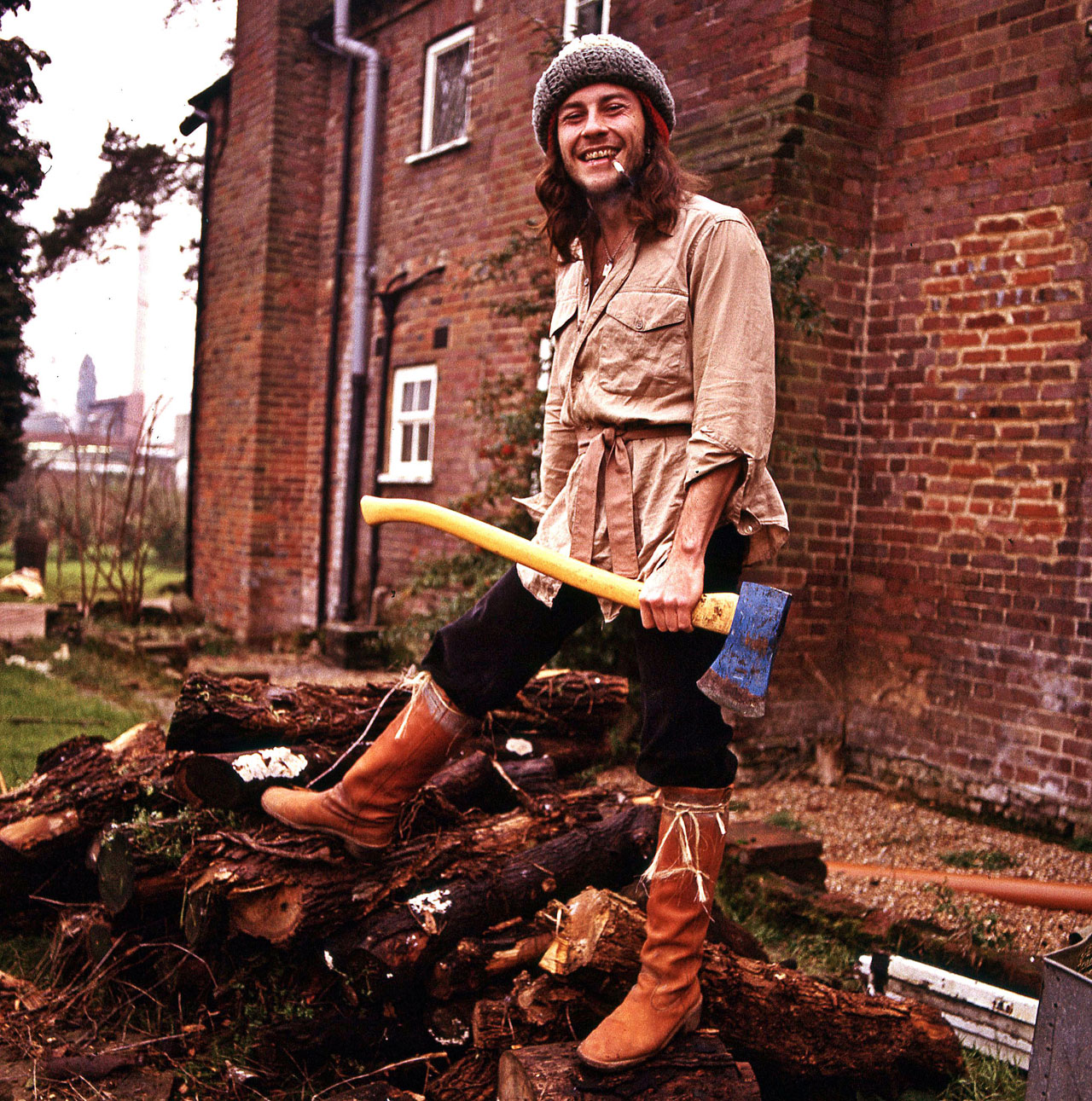
At this point, Jethro Tull’s cycle of making and touring an album each year was well set, and Songs From The Wood was recorded in less than four weeks in August 1976. Anderson arrived at the sessions with the bones of the record already laid out. He was, he says, mindful of how much time could be lost in the studio with trying to wrestle ideas out of thin air.
“And,” he adds archly, “I was a penny-pinching Scot. Also, I hated having to go back into the same room day after day to work. I liked to be on the first stagecoach out of Dodge.”
Incongruously, he gathered together the band – guitarist Martin Barre, bassist John Glascock, pianist John Evan, drummer Barriemore Barlow and a new addition, organist David Palmer – not in a candlelit hay loft, but at the much less fanciful environs of Morgan Studios in Willesden Green, north-west London. There the grimmest realities of the times could not help but intrude upon them.
“I can remember coming out of Morgan each night and checking under Martin’s car for bombs,” Anderson recalls. “These were the days when the IRA’s terrorism had extended itself and politicians, the military and police were targets. There was a certain concern that people in the public eye, such as rock and pop stars, might be next on the list for a showcase act.”
As he had done on every Tull album since their second, 1969’s Stand Up, Anderson also assumed the producer’s role. By his own admission, he had often enforced his will to such a degree that he “steamrollered” the others into compliance. On this occasion he strived for a more benevolent form of dictatorship, encouraging his bandmates to occupy the spaces within, and to dress the scenery of his songs. In particular, Palmer’s ornate organ and keyboard fills became a feature of the finished record. And on the epic Pibroch (Cap In Hand), Barre’s guitar approximated the sound of bagpipes a good six years before Big Country burst onto the scene.
“As a producer you’re always trying to find elements to make things work in a different way,” Anderson considers. “Obviously, coming from Scotland, I already knew that actual bagpipes are tricky things. The way they’re pitched makes them entirely unsuitable for accompaniment with other instruments. Afterwards I did work with a single piper on another record. I might even have found him busking in Leicester Square Tube station.
“In general, for Songs From The Wood, I left gaps between sections of vocal or chorus where there was an opportunity for other members to come up with bits of their own. Quite often I would leave the room to let them discuss ideas. Mostly, David Palmer would come up with additional music and passages. That helped to make the album what it was, because David’s background was in classical music and composition and he could do something I was not able to.”
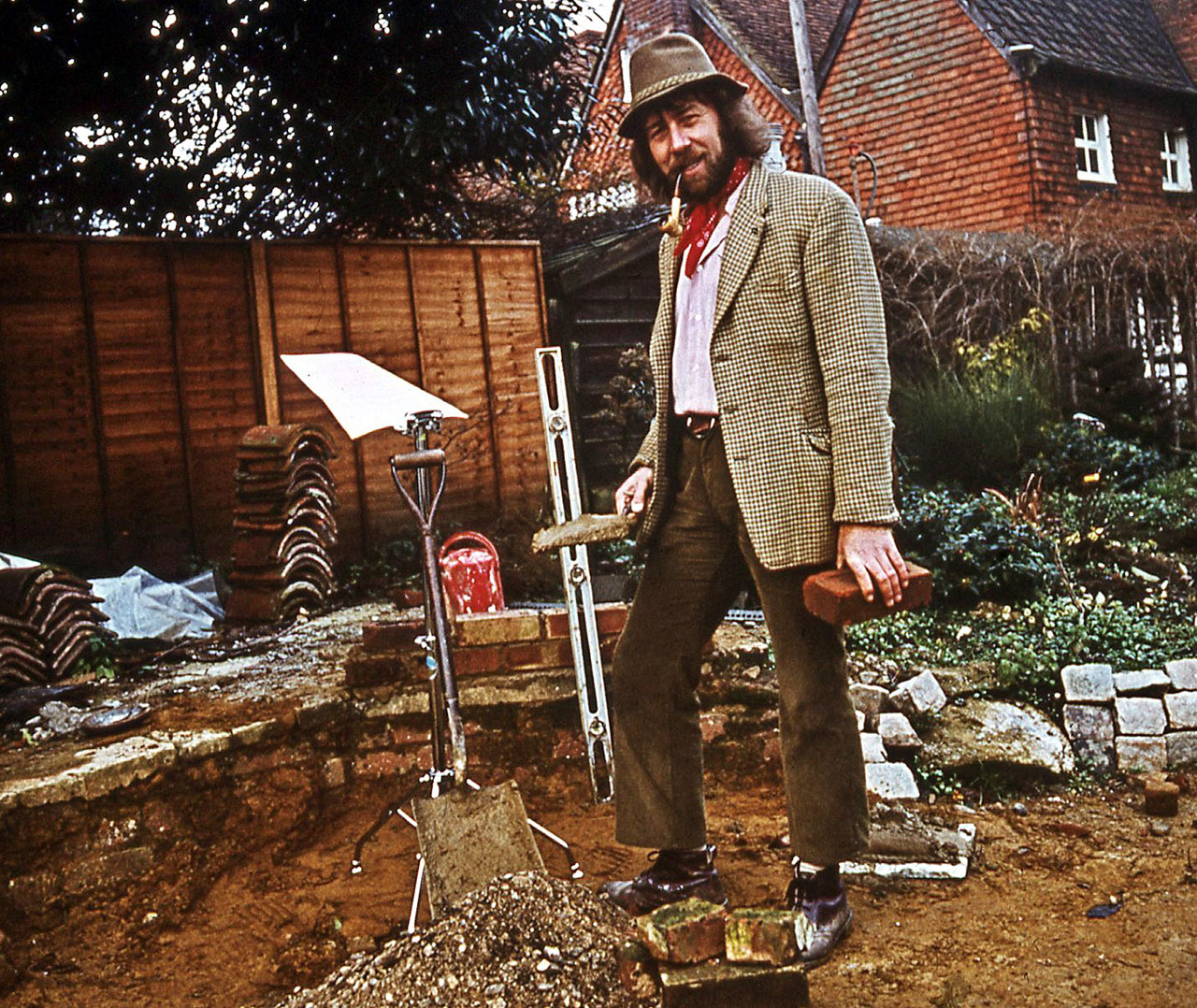
Nevertheless, Anderson was ever likely to be gripped by a spontaneous urge of his own. Relaxing at home one weekend in the middle of recording, the words and music to Jack-In-The-Green popped fully formed into his head. He sat down to Sunday lunch and afterwards summoned his engineer, Robin Black, to Morgan, where he put down the basic track in a matter of hours, playing guitar and drums unaccompanied.
By the time it was completed, Songs From The Wood was perhaps Tull’s most coherent and fully realised statement. Not a concept album in the strictest sense, it was nevertheless a very singular body of work. Each of its nine songs was linked by imagery and a shared musical language. This was folk rock with one foot in the past and the other tapping out a wilder, more audacious beat, Anderson’s flute doing a jester’s dance across the middle ground.
“Songs From The Wood is a collection of songs, nothing more, except for the most part they seem to belong together on the same record,” Anderson opines. “The Beatles did that admirably with Sgt Pepper’s, and the same with Pink Floyd’s first album, The Piper At The Gates Of Dawn. Those records were intact, whole, and served as examples to me when I started to write music. That would be evident in what I’ve done from Aqualung onwards.”
The initial portents for the album were not good. Tull’s label, Chrysalis, wanted a high-profile Christmas hit to precede it and badgered Anderson into having one of the album’s signature tracks, Ring Out, Solstice Bells, redecorated for the job, regardless of the song itself being a celebration of a pagan festival. Anderson accordingly handed it over to Mike Batt, of The Wombles fame, but his Yule-friendly garnish was to no one’s taste. In a panic by now, Chrysalis chucked out Anderson’s original Solstice Bells on December 6, 1976, whereupon it entered the UK charts at No.28 with an anchor attached, and slipped from sight the very next week, blown away by Johnny Mathis’s easy-listening behemoth When A Child Is Born.
“That was somewhat sad for me,” Anderson says. “It would have been rather nice to have had a Top Ten hit and been on the Christmas edition of Top Of The Pops. Also, though the band at that time was probably at its best, the seeds were being sown of musical discontent and personal differences between certain people. Within a year or two it began to feel to me as if that cohesiveness we had was getting lost. That was partly, I guess, because of the pressures and frequency of our touring. Things were quite stressful back then. It felt as if I was in charge of a juggernaut that could very easily run off the road.”
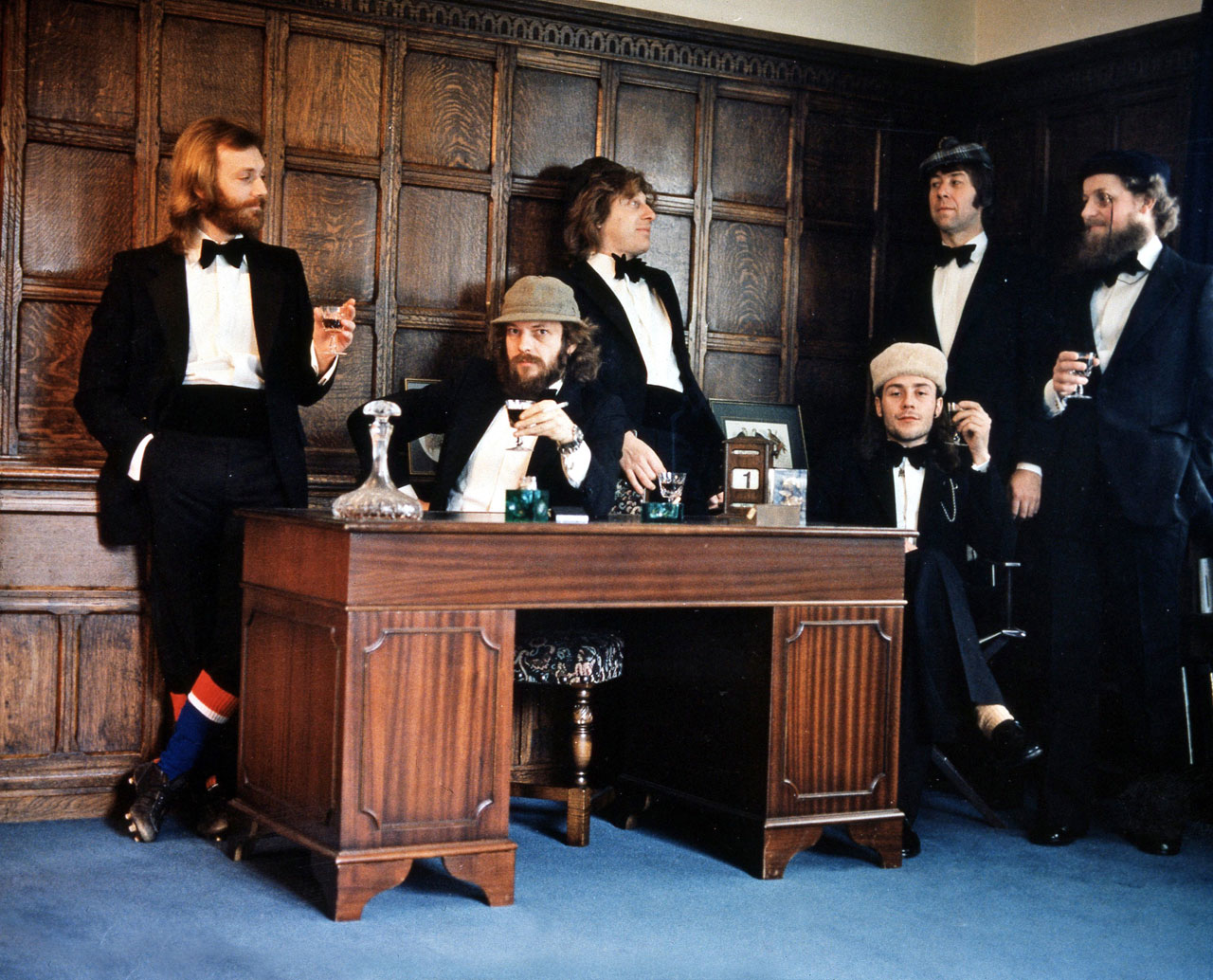
Yet the Songs From The Wood album was a roaring success. Released on February 11, 1977, it garnered Tull some of their most glowing notices since the halcyon days of Thick As A Brick. The NME, still not then entirely given over to cheerleading punk, hailed it “one hell of a fine record and an undisputed joy”. Over in the US, Rolling Stone went further, proclaiming it to be “maybe the group’s best ever record”. Tull’s fans concurred. It was a Top 20 hit in the UK and sailed to No.7 across the Atlantic, the last of the band’s albums to fly quite so high.
And if there were any lingering doubts as to Tull’s utter indifference to the zeitgeist, they surely would have been extinguished by the clip shot to accompany the release of their next single from the record, The Whistler. Filmed in a studio setting, it showed Anderson perched on a stool, resplendent in a “frivolous pantomime cossie” and leering like a loon, while about him stood Palmer at his keyboard, puffing on an enormous antique pipe, and Barre with a monocle clamped in his left eye.
“Well, it was kind of a lighthearted album,” Anderson offers, chuckling. “It didn’t have any terribly dark or brooding references, or the torture and aggression of certain other things we had done earlier and maybe also did later on. From that point of view, at least, it was inoffensive.”
Songs From The Wood ushered in a second, if short-lived, golden era for Jethro Tull. They toured it around arenas in the UK, Europe and America that year, and in 1978 followed it up with another excellent folk-rock confection, Heavy Horses. But bassist John Glascock fell ill and was unable to participate in the following year’s Stormwatch. That album ploughed the same rustic furrow, but sounded tired and lacked inspiration.
On November 17, 1979, barely two months after it was released, Glascock died from a congenital heart valve defect, aged just 28. Crushed at the loss of his close friend, Barriemore Barlow quit the band soon after, and the line-up that had made Songs From The Wood was no more.
The Tull that carried on the through the 80s and beyond was a very different beast. Specifically, Anderson now raced to catch up with the drift of the times, and added synths and an electronic gloss to the band’s sound. There were high points, notably 1987’s revitalising Crest Of A Knave album, but for the most part, these later versions of Tull were somewhat less endearingly eccentric than the one that had gone immediately before, and the band were never again so seeking and adventuresome.
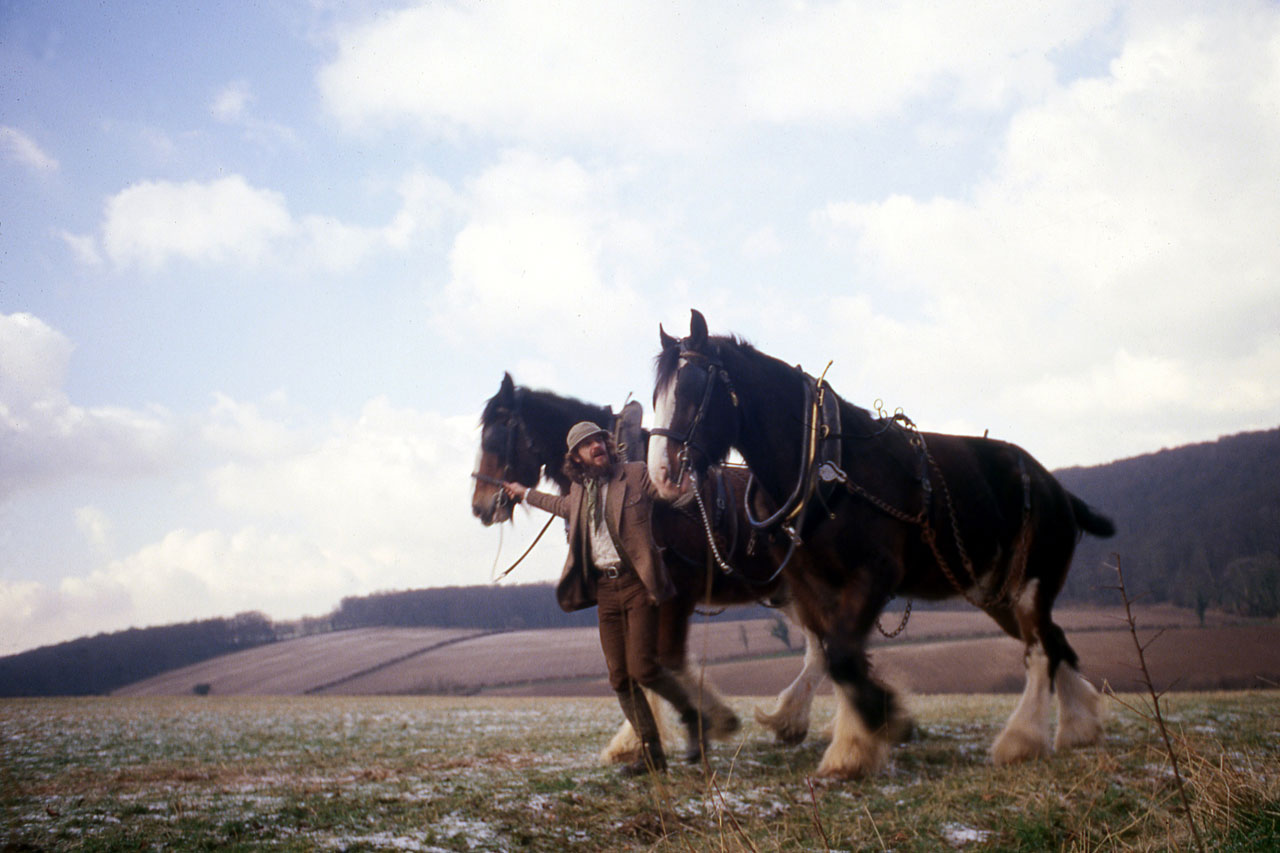
These days, Anderson continues to fly the flag for Jethro Tull’s legacy and is still touring their music around the world. He has also found a new and yet also ages-old way of reinterpreting it, with the release this month of Jethro Tull: The String Quartets album. Recorded in part in the crypt of Worcester Cathedral, on it he plays his flute in the company of the violins, viola and cello of internationally regarded chamber musicians the Carducci Quartet.
Together they have transformed Tull standards such as Living In The Past, Aqualung and Ring Out, Solstice Bells into jaunty chamber pieces. Affectionately, Anderson passes off the venture as “something that might get played at weddings, funerals and on Christmas mornings”. However, Songs From The Wood’s doomed Christmas single in particular sounds as if it was meant all along to be plucked out at the court of an early Tudor monarch.
Later this year, there will also be an anniversary edition of Songs From The Wood. As with the previous deluxe reissues of Aqualung and Thick As A Brick, the original tracks have been remixed by Steven Wilson. Even though they’ve been buffed and boosted by Wilson for this digital age, this ‘new’ version will doubtless sound just like the old in one respect at least: as uncompromising as it is ageless, like something beamed in from another time.
“Songs From The Wood was a landmark for me,” Anderson concludes. “But I see it as a quaint anachronism in today’s terms. For me, it’s an important album as a writer and musician, and in terms of giving the band a good few songs to play live, but it’s a little bit too tights-and-codpiece for most people.”
Anderson then catches himself, as though he’s just recalled something important that up to this precise moment has lain buried and forgotten for these last 40 years.
“Actually,” he continues, “by the time we did Songs From The Wood, the codpiece had mysteriously disappeared, never to be found again. My suspicion, though she flatly denies it, is that my wife put it on the bonfire with the autumn leaves.
“From time to time, and in vain hope, I still look to see if it has turned up on eBay. Who knows, one day I may yet end up paying through the nose, if not through any other orifice, for the return of it. Wouldn’t that be nice?”


Spirit Of ’77
The alternative playlist to Britain’s so-called Year Of Punk
Pink Floyd - Pigs (Three Different Ones)
An epic and terrifying descent into Roger Waters’s nightmarish near-future world, with David Gilmour’s stunning guitar playing stirring up hellfire. (From Animals.)
Fleetwood Mac - The Chain
The only Mac song credited to the entire band – Brits Mick Fleetwood, John McVie and Christine McVie; Americans Stevie Nicks and Lindsey Buckingham – and awesome from the moment John McVie’s bass rumbles with intent. (From Rumours.)
Yes - Wonderous Stories
Jon Anderson goes off with the faeries, while Steve Howe and Rick Wakeman scamper around and about him. Collectively, just as defiant in the face of punk’s anarchy as Jethro Tull were. (From Going For The One.)
Foreigner - Cold As Ice
Expat Brit Mick Jones brought in lung-busting American singer Lou Gramm straight from the building site where he was humping bricks. In tandem they defined the sound of FM rock for the next decade. (From Foreigner.)
Status Quo - Roll Over Lay Down
Recorded at Glasgow’s Apollo Theatre in October 1976, this was the ultimate rendering of the Quo’s brand of no-nonsense, heads-down boogie. (From Quo Live!.)
Judas Priest - Sinner
Heavy metal thunder was unleashed in the West Midlands through Glenn Tipton and KK Downing’s sawing, switchblade riffs and the still-remarkable voice of Rob Halford. (From Sin After Sin.)
Jethro Tull - The Whistler
Songs From The Wood’s most effusive track is driven by the whip-crack of Barriemore Barlow’s snare and Ian Anderson’s goggling wordplay. (From Songs From The Wood.)
Peter Gabriel - Solsbury Hill
Fresh out of Genesis, Gabriel teamed up with producer Bob Ezrin (Alice Cooper, Lou Reed) for his solo debut, which peaked with this celestial folk masterpiece. (From Peter Gabriel.)
UFO - Too Hot To Handle
The sound of classic British hard rock: Pete Way’s caveman bassline, Phil Mogg’s urgent vocals and guitarist Michael Schenker’s magic touches. (From Lights Out.)
Motörhead - Motörhead
Lemmy’s speed-fuelled calling card, originally written for Hawkwind and here given extra thrust by ‘Fast’ Eddie Clarke and Philthy Animal Taylor. (From Motörhead.)
ELO - Sweet Talkin’ Woman
The high point of 1977’s most unashamedly overblown collection, as Jeff Lynne and his symphonic-rock overlords squeeze lost love, astral harmonies and the kitchen sink into a dazzling three minutes and forty-five seconds. (From Out Of The Blue.)
Queen - We Will Rock You
Queen recorded News Of The World at the same studio where the Sex Pistols were making Never Mind The Bollocks. Encountering Freddie Mercury one day, Sid Vicious sneered: “Still doing opera for the masses, Freddie?” “Oh yes, Mr Ferocious, we’re trying,” Mercury shot back. This was the exclamation point on that last laugh. (From News Of The World.)
The 10 most important albums in Jethro Tull's career
Ian Anderson on Jethro Tull and the importance of looking forward
Martin Barre: “Ian and I don't communicate – we've gone our separate ways"
